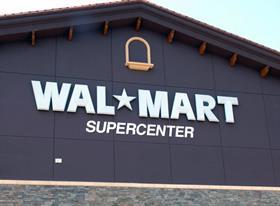
US retailer Wal-Mart Stores Inc. has announced this week that it has offered to acquire 51 per cent of the shares in Massmart Holdings, a managed portfolio of nine wholesale and retail chains, and one buying group, operating in 14 countries in sub-Saharan Africa.
The share offer, which is for ZAR148 (€15.73) per Massmart ordinary share, represents a 19.2 per cent premium to the 30-day weighted average price on 23 September and has been unanimously recommended by the Massmart board of directors.
'We continue to be excited by the opportunity to invest in Massmart's business and to accelerate its growth and expansion in South Africa,' said Doug McMillon, president and CEO of Wal-Mart International. 'The more we learn about South Africa and the surrounding countries the more we are convinced that this is an important region with attractive growth characteristics. This combination fits perfectly with our strategy to enter high growth markets in which we can apply our global expertise and generate strong returns.
'Also, this acquisition will allow us to bring to South Africa our significant experience in connecting small farmers with Walmart's global supply chain, boosting farmer income as well as helping them improve the quality of their produce,' he added. 'We hope to help South African suppliers grow their businesses, become more efficient, environmentally friendly and ultimately more competitive.'
Wal-Mart revealed in the statement that it would be looking to broaden and accelerate Broad Based Black Economic Empowerment, as well as working closely with local partners to grow skills and foster socio-economic development in the region.
Andy Bond, executive vice-president with responsibility for Wal-Mart's operations in the region, said that the due diligence conducted by the group had underlined its confidence in the move, describing it as a 'compelling combination' that would create 'significant value' for both companies.
'In addition to supporting Massmart's growth strategy, we believe Walmart can drive meaningful value creation through enhanced buying efficiencies, expanded distribution and logistics capabilities and sharing of global best practices in retail formats and information technologies,' Mr Bond noted.



